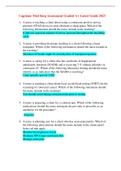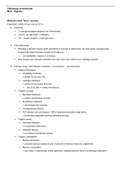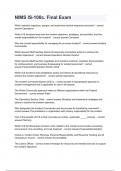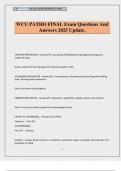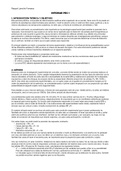Contents:
1. Textbook Treitel Chapter 2 Detailed Summary
-
2. Some bullet points summaries of key concepts, definitions, debates and
discussions:
Offer:
● General Offer
● Invitation to treat
○ Common cases of invitations to treat
○ Common cases of offer
● Termination of Offer
○ Methods of revocation
Acceptance:
● Communication of acceptance
● Postal Rule
○ Rationale for postal rule
● Acceptance without knowledge of the offer
○ Evaluating rule
● Acceptance in a prescribed way
● Acceptance in unilateral contracts
● ‘Battle of Forms’
3. Cases (detailed summary + categorised):
-PSGB v Boots
-Partridge v Crittenden
-Gibson v Manchester CC
-Harvela Investments v Royal Trust Co of Canada
-Shogun Finance Ltd v Hudson
-Lewis v Averay
-Ingram v Little
-Cundy v Lindsay
-Raffles v Wichelhaus
-Dickinson v Dodds
-Hyde v Wrench
-Butler Machines v Ex-Cello Corp
-Daulia v Four Millbank Nominees Ltd
-Errington v Errington
-Carlill v Carbolic Smoke Ball Co
-Manchester Diocesan Council for Education v Comm. & Gen. Investments
-Brogden v Metropolitan Railway
-The Brinkibon case
-Holwell Securities v Hughes
-Entores v Miles Far East Corp
-Byrne v Van Tienhoven
-Household Fire Insurance v Grant
-Felthouse v Bindley
4. Articles (detailed summary):
,-Steve Hedley, “Keeping Contract in its Place – Balfour v Balfour and the Enforceability of
Informal Agreements” (1985) 5 OJLS 391
-Donal Nolan, “Offer and Acceptance in the Electronic Age” in Burrows and Peel Contract
Formation and Parties (OUP 2010)
1. Textbook Treitel Chapter 2 Notes/ Summary of topic:
Offer
Offer defined
General rule: any expression of willingness by the offeror (A) to contract on specified terms,
with objectively ascertained intention that it is to become binding upon acceptance by the
offeree (B).
● If B knows A actually lacks intention, it is not binding
● If it appears A has intention and B has formed no opinion on it, there is judicial
conflict as to whether it’s binding or not (author believes it is)
● An offer can be made to anyone, including the world at large, and expressly or by
conduct
● Inactivity can comprise an offer only if combined with other circumstances
Offer distinguished from invitation to treat
General rule: an invitation to treat invites the other party to make an offer depending on A’s
intention, even if framed as something else.
● Eg. auctions are offers to accept the highest bid, with each higher bid lapsing the
previous ones
● On the other hand shop window displays, self-service shops, petrol bunks and
websites showing available goods are invitations to treat
● Ads for unilateral contracts, eg. rewards for stolen property, are offers as no
bargaining is expected to result and A intends to be bound by them
● Ads for bilateral contracts, eg. menus in restaurants and ads for goods for sale are
not offers as it’s expected there will be further bargaining or something similar
● No one agrees on whether timetables and train tickets are offers or invitations to treat
● Tenders are invitations to treat unless they expressly state a condition on which they
become binding, eg. the highest bidder
● Share subscription documents by a company to the public are invitations to treat but
issue of rights shares are offers
Where and when an offer takes effect
A contract is made when and where acceptance is received. If acceptance is made by letter,
the contract is made when and where the letter is posted.
Acceptance
Acceptance defined
General rule: final and unqualified expression of assent to an offer’s terms – objectively
assessed.
● Where there are multiple proposals, it must be clear which one is being assented to
● Where there are prolonged negotiations, the courts will look for an agreement
between parties on the same terms regardless of any further negotiations
, ● Acceptance by conduct is valid if accompanied by objective intention of acceptance
● Replies vary the offer are rejections and counter-offers, but if they say A’s terms will
be accepted even if the variation is refused, they are acceptances
● If V delivers goods to D on V’s conditions, D stamps the delivery notes saying it is on
D’s conditions and V hands over the goods, that is taken to be acceptance of D’s
conditions (“last shot doctrine per BRS v Arthur Crutchley Ltd)
○ This was avoided in Butler Machine Tool - in the reply, reference was to the
subject matter of the contract and not to its terms, so it was an acceptance of
the other’s terms
● Acceptance of a tender creates a contract, unless the tender stipulated the
completion of other conditions or its terms are uncertain
● Tenders can be acceptance, eg. where it’s stated that the highest tender will be
accepted, unless that tender was a ‘referential’ bid (whatever the other guy’s bid is,
I’ll pay £x more) – Harvela Investments Ltd v Royal Trust Co of Canada (CI) Ltd
Communication of acceptance
● Acceptance must be communicated to A by B or by someone else with B’s
authorisation
● Exceptions:
a. Acceptance to A’s agent who authorised to receive
b. It is A’s fault that he didn’t receive the acceptance
c. Offers which state terms of acceptance, in accordance with those terms
d. Unilateral contracts, where acceptance need not be communicated (Carlill)
● Postal acceptance rule: acceptance occurs when the letter is in control of the Post
Office or its agents authorised to collect, as long as it’s reasonable to send
acceptance by post
● Consequences:
a. A postal acceptance > a withdrawal posted which hasn’t yet reached B
b. A postal acceptance is valid even if it doesn’t reach A
c. The contract is made at the time and place of posting
● Misdirected acceptances (wrong addresses etc) caused by B’s carelessness don’t
come under the postal rule, and come into effect at the time least favourable to B
● Garbled offers are binding if accepted; it’s unclear whether garbled acceptances are
binding (Treitel believes they should be, if acceptance corresponds to offer)
● If there is a postal acceptance, it’s unclear whether a subsequent revocation of
acceptance reaching before the acceptance is valid
● “Distance” contracts (letter, fax, email, website trading) for supply of G&S to a
consumer can be cancelled by the consumer within 7 days (but are still made) under
the Consumer Protection (Distance Selling) Regulations 2000
Prescribed method of acceptance
General rule: if the offer prescribes a way of acceptance, to be valid an acceptance must
conform to the specifications.
● If an alternative method serves the object that the offeror had in mind when
specifying a term, that may be used
● A can waive the prescribed method if it only benefits him
● If it benefits both parties, both must consent to the waiver
Acceptance by silence
General rule: acceptance by silence alone will be inferred only in exceptional circumstances,
even if silence is the prescribed method of acceptance, due to the effort required to not be
silent.
, ● A may nevertheless be bound even if B isn’t
● Exceptions:
○ B himself solicited the offer
○ B himself included the condition of acceptance by silence
○ The offer was made in the course of dealings between the parties
● Where B knows A acting in reliance on his belief in the offer, he will be estopped if
the silence was (rarely) a “clear and unequivocal” representation
● Conduct can turn silence into acceptance
Acceptance in ignorance of offer
General rule: if B doesn’t know of the offer there is no agreement and hence no contract.
● If two people make identical offers to each other there is no contract, to promote
certainty
● The act fulfilling the offer must be motivated, in however small part, by the offer itself
Acceptance of a unilateral contract
● When A offers to do something for B if B does something for A, without B promising
to do that, A makes a unilateral offer to B
● B accepts by simply performing the specified act - notifying A isn’t needed
● Offers can be withdrawn before acceptance, ie performance
● Offers can’t be withdrawn when there is part-performance, although rationales differ:
○ There is acceptance
○ There is an implied second offer not to withdraw the first one if the act has
begun
● Similarly, indivisible guarantees can’t be withdrawn after performance has begun, but
future divisible guarantees can be revoked
● When a bank tells a seller it has given the buyer irrevocable credit, it is irrevocable -
a type of unilateral offer even if there’s no performance then
● Estate agent instructed to negotiate the sale of a house for commission - unilateral
contract which can be revoked even if efforts have been made to find a buyer which
Treitel says is an exception to the part-performance rule
● If performance is wholly or partly done, the initial offer is non-negotiable
Termination
Withdrawal
General rule: an offer can be withdrawn by communication to B which reaches them before
acceptance, by A or any reliable source. “Reliable source” creates uncertainty.
● Exceptions:
○ If the letter is sorted, opened etc at different places in an office,
communication takes place where the letter is opened in the ordinary course
of business
○ B’s conduct, eg. it reaches B at their desk but they don’t read it
○ Where made to the public, A must take reasonable steps to notify all people
even if it doesn’t actually notify all of them
● Acceptance of a withdrawn offer is a new offer on the same terms




